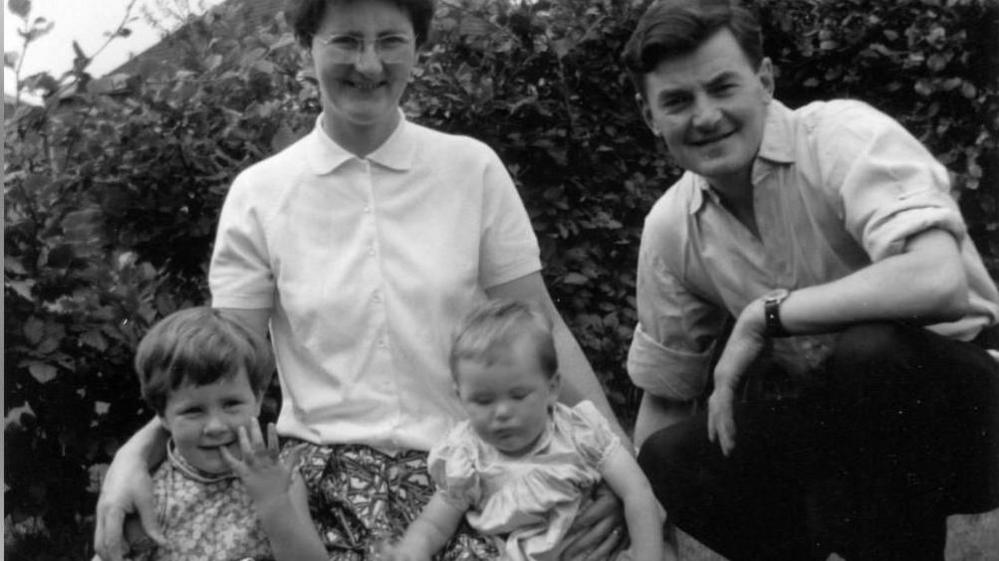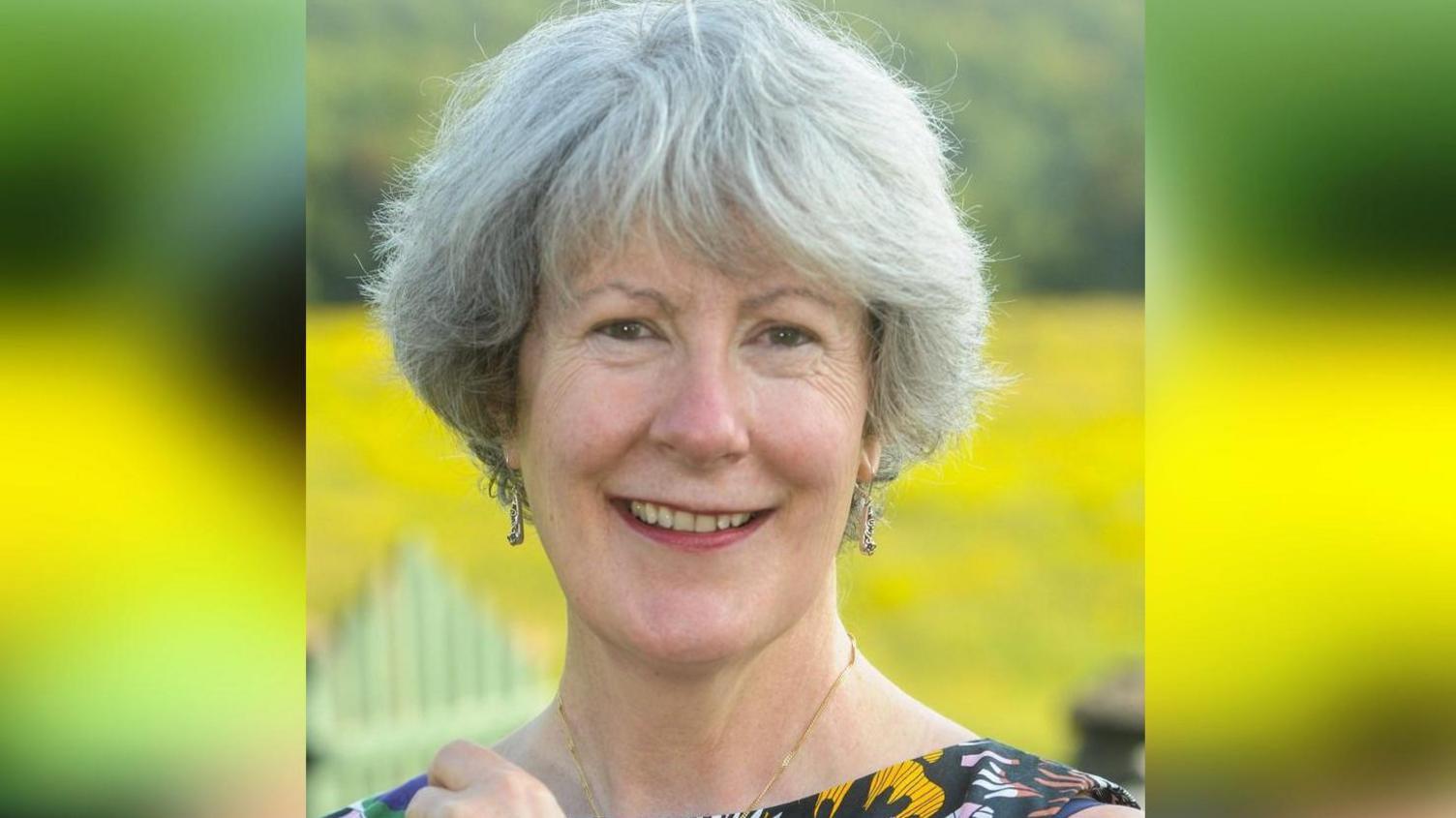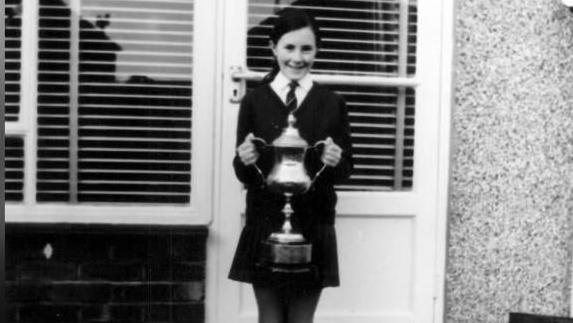Poet recalls childhood with emotionally abusive mum

Gwyneth Lewis, her sister and their parents in about 1963
- Published
Wales' first national poet has described how her childhood became a "purgatory" because of her coercive and emotionally abusive mother.
In a new book Gwyneth Lewis said she was made to feel completely worthless by the one person she turned to for love and guidance.
She recalled the endless academic pressures piled on her and how she would be punished for days over the slightest thing, such as staining the bed sheets during her period.
She said it was something she "lives with constantly" and would not have been able to get on with her life had she not put her experiences into words.
Sign-language poet honoured with plaque
- Published26 April 2024
Actor playing Dylan Thomas thankful for Swift song
- Published14 May 2024
"It’s not easy for a person to reveal such private and personal things," said Gwyneth on the Bwrw Golwg programme on BBC Radio Cymru.
"It's a record of the past but emotional abuse doesn't go away, someone lives with it constantly.
"When you're a child you have no protection at all - especially if the abuse takes place in the home."
Gwyneth Lewis was national poet from 2005-2006, and in 2022 was appointed MBE for services to literature and mental health.
She is also widely known for composing the words on the outside of the Wales Millennium Centre in Cardiff in Welsh and English: Creu gwir fel gwydr o ffwrnais awen, In these stones horizons sing.
Compiled from old diaries, her upcoming memoir Nightshade Mother: A Disentangling recalls how, whilst competing in eisteddfod competitions, her mother Eryl Lewis was given to penning and submitting compositions herself to ensure her daughter won.
This stemmed from wanting her daughter to achieve everything she had not.
But, as a result, Gwyneth said she was made to feel like a hypocrite and a liar.

Gwyneth Lewis says that what she experienced "doesn't go away"
Nevertheless, despite the "horrific" emotional abuse, Gwyneth said that, materialistically, she was given everything she needed and even had loving feelings towards her mother.
She said she and her sister were well fed, had beautiful handmade clothes and enough books to meet all their educational needs at their home in Cardiff.
"It was an extremely mixed situation," she said.
"We tend to idealise the mother in our literature, especially in Wales.
"But I knew that the treatment I was getting was not fair and I was angry from a very young age. I was fighting against my injustice.
"The way your parents treat you sets out the script for a lifetime - if there is irritation in the voice, a child internalises it."

A young Gwyneth with a cup she won for her eisteddfod successes
While suffering with severe mental illness while studying at Cambridge, she remembered receiving a letter from her mum.
In it she described her negative traits as inherited from her own mother.
"This element of instability, perhaps comes from grandma's side," wrote Mrs Lewis.
"She was very difficult to live with - the home atmosphere was not good."
Gwyneth said her mother suffered with depression and that there was a history of emotional abuse in the family.
"This thing doesn't just come from nowhere," she said.
But she also said her early compulsion to compete had taught her to be disciplined.
"That discipline has helped me in my writing life, but on the other hand comparing yourself to other people is crazy," she said.
"Now I'm very reluctant to compete - everyday life is the prize for me and nothing else."

Gwyneth Lewis is the author of the words carved on the Millennium Centre in Cardiff
She also hopes her book will help others.
"The main thing I want is for it to reach people who have had a similar experience of emotional abuse," she said.
"I have been preparing to write this since my 20s because I am aware that when I was in the middle of purgatory there was no guidance at all.
"The thing I've been looking for all my life is for someone to describe the shape of that experience, the shape the effect of emotional abuse can have on you as a person.
"I was stuck emotionally and if I hadn't written this book I wouldn't be able to move on with my life now," she added.